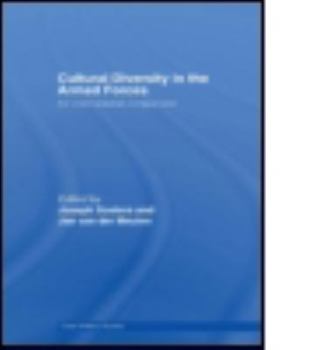Cultural Diversity in the Armed Forces: An International Comparison
Select Format
Select Condition 
Book Overview
This volume explores ethnicity and gender developments in relation to the military.
In some countries, the armed forces have a long history in responding to ethnic diversity, while elsewhere it has come up only recently as a policy issue. An even-handed representation of ethnic minorities in the military is recognized as crucial for enhancing its social legitimacy and professional quality. The same can be said about the integration of women in the military, which during a few decades across the board has grown into more than just another issue of personnel policies. Indeed with regard to gender, the symbolism and sensitivities surrounding core identities are at stake - as with the presence of gays and lesbians in the military.
Written by experts in the field, the chapters cover fourteen countries around the world: the USA, Canada, Bolivia, Ecuador, Brazil, South-Africa, Eritrea, India, Israel, Great Britain, France, Germany, Belgium and The Netherlands. Taken together, the armed forces of these countries offer a fascinating mix of similarities and differences in the ways they try to manage cultural diversity.
Cultural Diversity in the Armed Forces will be of interest to students and scholars of military studies, sociology, gender and political science.





